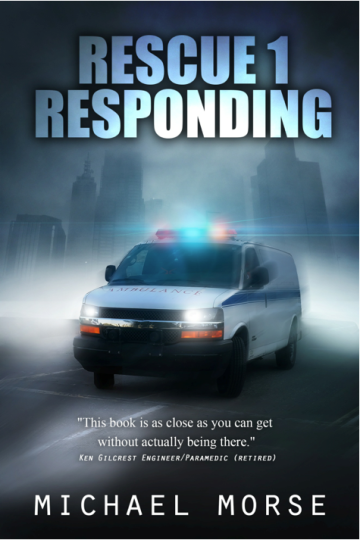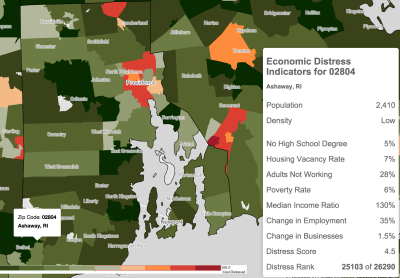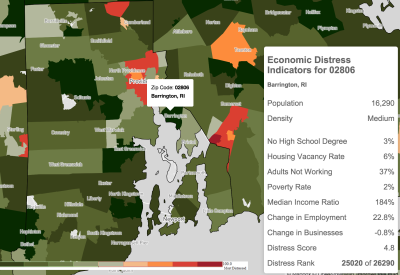Rescue 1 Responding: Chapter 11 & 12, a Book by Michael Morse
Monday, August 15, 2016
I always thought that a day in the life of a Providence Firefighter assigned to the EMS division would make a great book. One day I decided to take notes. I used one of those little yellow Post it note pads and scribbled away for four days. The books Rescuing Providence and Rescue 1 Responding are the result of those early nearly indecipherable thoughts.
I’m glad I took the time to document what happens during a typical tour on an advanced life support rig in Rhode Island’s capitol city. Looking back, I can hardly believe I lived it. But I did, and now you can too. Many thanks to GoLocalProv.com for publishing the chapters of my books on a weekly basis from now until they are through. I hope that people come away from the experience with a better understanding of what their first responders do, who they are and how we do our best to hold it all together,
Enjoy the ride, and stay safe!
GET THE LATEST BREAKING NEWS HERE -- SIGN UP FOR GOLOCAL FREE DAILY EBLASTCaptain Michael Morse (ret.)
Providence Fire Department
The book is available at local bookstores and can be found HERE.
Note from the Author
One thing I miss about being on the streets is the ability to prowl the city at all hours. There is palpable energy in most places, and Providence is a lightning bolt. Benefit Street is brimming with history, the reproduction gas lamps that illuminate cobblestone sidewalks and centuries old doorways are sometimes shrouded with fog at dawn, and I swear I have seen the ghost of Edgar Allen Poe strolling along, searching for his love, the reputable widow Sarah Whitman. There has been a lot of living in this city, fortunes made and lost, novels written, powerful men spending their years accumulating wealth and power only to find that in the end they were no different from the people they worked so hard to rise above. We come into this world alone, and go out alone, some leaving a mark that will last a few years, decades or centuries, but eventually are forgotten like most of us who live and die in relative obscurity.
Chapter 11
0934 hrs (9:34 a.m.)
“Rescue 3 and Engine 7; respond to 268 Benefit Street for an elderly male who has fallen down the stairs,”
We put down the paddles; I went for the Rescue, Wayne for the couch.
We leave the station and turn left toward Benefit Street. When Providence was an industrial powerhouse, factory workers and their families inhabited the homes that line the historic street. Textile mills and factories were abundant nearby, most of which have since been destroyed by fire. Some of the mills have been converted to living space or offices but nobody is making much of anything these days in Providence, the manufacturing base has been shipped overseas. The Providence Preservation Society saw the value of the old homes that had been subdivided and turned into tenements long before developers and real estate professionals did and insisted the homes be preserved. Rather than let the area be redeveloped or demolished, the buildings were restored. We now have the finest cohesive collection of restored 18th and early 19th century architecture in the United States right at our doorstep. The “Mile of History” is one of the most prolific, vibrant parts of the city. Reproduction gas street lamps illuminate the area at night; you can imagine yourself walking in the footsteps of Edgar Allen Poe who spent his later years in Providence courting a reputable widow, Sarah Whitman at the Providence Athenaeum, the fourth oldest private library in the country.
The guys from Engine 9 are inside the historic home; their truck parked about thirty feet past the doorway leaving room for the rescue. We pull the stretcher from the back of the rig; place a long spine board on top and walk in, passing a cast iron boot scraper that has been there for centuries.
An elderly couple sits on a couch in the front room. Bob Cataldo from the 9’s gives me the story.
“He was trying to help his wife up the stairs with the laundry basket, she was raising it up to the balcony, he leaned too far and fell over the balcony and right on top of her.”
“No way,” I say, shocked that the people are not more seriously hurt. I walk over to the stairs, a balcony with a three foot railing is at the head of the stairway which has a landing about ten feet down, then another seven or eight steps.
“Way,” says Bob.
”Are you folks okay?” I ask the gray haired couple sitting next to each other on the couch. The man is crooked, rubbing his lower back, his wife sits straight, but has a laceration and bump on her forehead.
“I’m fine, I’m worried about her,” the man says.
“I’m okay, I’m worried about him,” she replies.
“I’m worried about both of you. I can’t believe you two walked away after that fall. You must be pretty tough.”
“Sixty years of marriage will do that,” they say at the same time, and then smile at each other.
“We’re going to get you to the hospital, just bear with us, I want to get you immobilized on a backboard for the ride.”
“I know how that goes,” says the man, “just a few months ago we were in a car accident on Academy Avenue, I went through it then. It’s a good thing I did, the doctors at Miriam Hospital said the EMT’s saved me from being paralyzed, I had a broken neck.”
“I thought you two looked familiar,” I said, “that was me! A hit and run driver sideswiped you and ran you into a utility pole. If I remember correctly, you were worried about your wife.”
“He’s the one that ended up in the hospital for a week,” she said, reaching over to hold her husband’s hand. “There was nothing wrong with me.”
With help from the engine company we “package” our patients for the ride to the hospital. I still can’t believe these two elderly people had two traumatic incidents in the last month and managed to tell the tale. From the look of things, no serious harm was done by the fall, which is truly amazing. First, a fall of ten feet can be serious at any age, being eighty increases the chance of broken bones or worse. Second, having a two-hundred pound man fall on you from ten feet has its share of complications.
We ride down Benefit Street toward the hospital, my patients, together for better and worse under my care again.
Chapter 12
I head to the privacy of my office and decide to test the waters at home. I take my phone from my top pocket and plunge. Cheryl answers on the first ring.
“Hello.”
“Hey babe, how are you?”
“Fine.”
“What’s going on?”
“Nothing.”
“Are you going to give me one word answers all day?”
“I’m not playing any games, I’m just tired. You didn’t really do anything wrong, I’ve just got a lot on my mind.”
“Me too. What time is dinner tomorrow?”
“I’m going to try for three. You should have had enough rest by then.”
“I’ll be fine.”
“I know. Call me later.”
“Alright. Love you, bye.”
“Love you too.”
Lukewarm. It seems there may be hope. I want to go to Venda now, but I don’t want to wake Al up if he is sleeping. We have to take care of each other. However, if I don’t come through with the goods, I’ll never hear the end of it. The couch is irresistible and sucks me in.
1157 hrs. (11:57 a.m.)
“Rescue 3 and Engine 2, a still alarm.”
My eyes pop open and I’m instantly awake. I don’t have to wait long for the rest of the transmission.
“Rescue 3 and Engine 2, respond to 74 Ledge Street for a seven-year old who is unconscious.”
“This kid doesn’t know the meaning of unconscious,” I say to Al as we head out the door behind Engine 2. I have responded to hundreds of emergency calls for unconscious people only to find them wide-awake when I get there. I don’t know why people say that the person they are calling for is unconscious; maybe they think we’ll get there faster. Of course, there is always the chance that the person actually is unconscious, in that case we will be ready and respond accordingly.
We follow Engine 2 as they make their way over Rt. 95 and into the north end of the city. Single-family homes are mixed with multi-unit properties, some well kept, the majority dumps. Twenty years ago this was a respectable area. The older residents tell of how it used to be when I get them in the back of the truck. With sadness in their voices they tell me about the neighborhood before the trash moved in. I am not a fan of generalization, but it is hard to ignore the facts. I see some homes meticulously kept, and others suffering from neglect and can feel the old folks' pain. Nobody wants to see the street where they lived and raised their families lose its dignity, but that is the picture they see when they look out of their windows.
Engine 2 pulls past the house on Ledge Street and Al pulls Rescue 3 in front. As soon as the vehicle stops, a seven year old boy walks out the front door and lets himself into the back of the rescue.
“Can you find out what that kid is doing?” I ask Al. He goes to the back of the truck and I head to the front door. The guys from Engine 2 follow me in.
“What’s going on over here?” I ask a thirtyish guy dressed in his pajamas.
“He’s sick. The hospital didn’t do nothing so we’re sending him back.”
“What are you talking about?” I ask.
“The rescue took him to Hasbro last night because he was puking. He’s still puking today so we’re sending him back.”
“Are you nuts?” I ask. He looks at me with a blank stare. The place is filthy. A picture of Robert De Niro adorns the front door, the only decent item in the entire place.
“Where is his mother?” I ask.
“Getting dressed. She’ll be there in a minute.”
I cannot believe the audacity of this guy. The people of this city truly believe we are at their beck and call. Not only is he abusing the 911 system today, he did it last night as well.
“Why don’t you take him to the hospital yourself?” I ask.
“I don’t have a car.”
“Why don’t you get a car?”
Just then the boy’s mother comes out of a rear bedroom. She looks frail and exhausted. I tell myself that nothing is going to change by trying to make these people see the error of their ways.
“Let’s go,” I say to the mother. “You guys are all set,” I tell the members of Engine 2. This surprises none of them; they’ve seen it all before.
Al is waiting in the back of the rescue. He has made a friend. He has the sick boy lying on the stretcher covered with a giant stack of blankets he got out of one of the storage compartments.
“What’s this?” I ask.
“He said he was cold.”
“Not anymore,” I say as the boy laughs heartily. I put the mother on the bench seat and get ready to go.
“Why are you going back to the hospital?” I ask.
“He’s still sick,” she says.
“He’s going to be sick here or at the hospital. Why don’t you keep him at home, put him to bed and give him some soup?”
“We don’t have any soup,” she says. I give up. Al has taken the boy’s vital signs and temperature and has found them to be normal.
“Hasbro?’ he says as he leaves the back of the truck.
“Code C.” I say and get ready to take down the boy’s information.
Michael Morse lives in Warwick, RI with his wife, Cheryl, two Maine Coon cats, Lunabelle and Victoria Mae and Mr. Wilson, their dog. Daughters Danielle and Brittany and their families live nearby. Michael spent twenty-three years working in Providence, (RI) as a firefighter/EMT before retiring in 2013 as Captain, Rescue Co. 5. His books, Rescuing Providence, Rescue 1 Responding, Mr. Wilson Makes it Home and his latest, City Life offer a poignant glimpse into one person’s journey through life, work and hope for the future. Morse was awarded the prestigious Macoll-Johnson Fellowship from The Rhode Island Foundation.
Related Slideshow: RI’s Distressed Communities - 2016
Related Articles
- Rescue 1 Responding: Chapter 4, a Book by Michael Morse
- Rescue 1 Responding: Chapter 3, a Book by Michael Morse
- Rescue 1 Responding: Chapter 2, a Book by Michael Morse
- Rescue 1 Responding: Chapter 5, a Book by Michael Morse
- Rescue 1 Responding: Chapter 6, a Book by Michael Morse
- Rescue 1 Responding: Chapter 9, a Book by Michael Morse
- Rescue 1 Responding: Chapter 7 & 8, a Book by Michael Morse
- Rescue 1 Responding: Chapter 10, a Book by Michael Morse
- Rescuing Providence: Part 1 - 1036 Hours Through 1339 Hours, a Book by Michael Morse
- Rescuing Providence: Part 1 - 1355 Hours Through 1646 Hours, a Book by Michael Morse
- Rescuing Providence: Part 1 - 0800 Hours Through 0840 Hours, a Book by Michael Morse
- Rescuing Providence: Prologue, a Book by Michael Morse
- Starting Next Week: GoLocalProv Starts Publishing “Rescuing Providence” By Michael Morse
- Rescuing Providence: Part 2 - 1800 Hours Through 1946 Hours, a Book by Michael Morse
- Rescuing Providence: Part 2 - 2056 Hours Through 2233 Hours, a Book by Michael Morse
- Rescuing Providence: Part 3 - 1252 Hours Through 1543 Hours, a Book by Michael Morse
- Rescuing Providence: Part 3 1158 Hours Through 1245 Hours, a Book by Michael Morse
- Rescuing Providence: Part 2 0530 Hours Through Part 3 0915 Hours, a Book by Michael Morse
- Rescuing Providence: Part 2 - 0004 Hours Through 0230 Hours, a Book by Michael Morse
- Rescuing Providence: Part 3 - 1615 Hours Through Epilogue, a Book by Michael Morse








